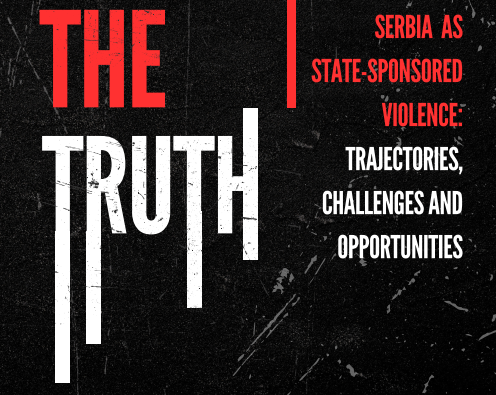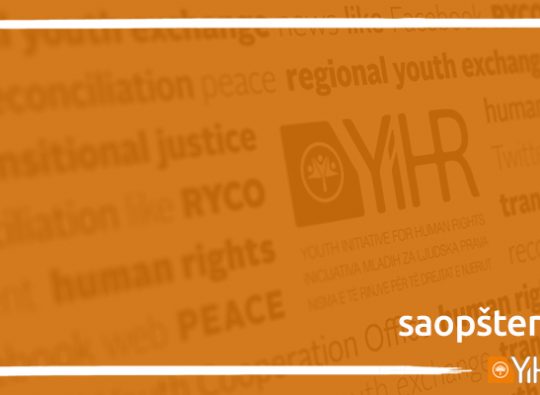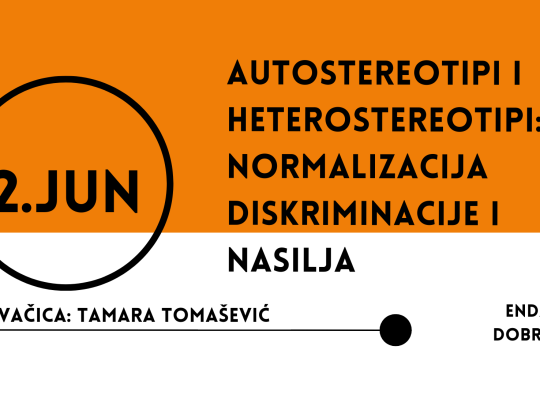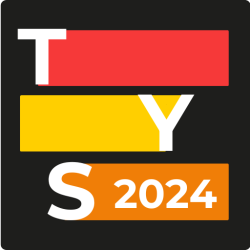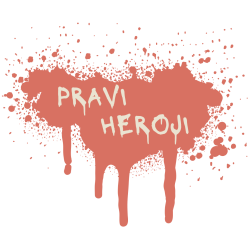The program started with the lecture (National) Youth Day in socialist Yugoslavia, in Endzio Hub in Belgrade. Lecturer dr Sanja Petrović Todosijević, a senior research associate at the Institute for Recent History of Serbia, discussed with the participants the framework of kids and youth growing up in post-war Yugoslavia, the inheritance of the symbolism of the 25th of May and the emancipatory practices from the time of Yugoslavia.
“In the years after the war, the country tirelessly used the figure of a child fighter to position it in society. Forcing this picture was necessary for children to get emancipated as a social group compared to all the others, ” said Petrović Todosijević.
After the lecture, YIHRs head of research and advocacy Marko Milosavljević, talked to the youth about the Đukić case and the Tuzla massacre.
On the second day of the program, the 25th of May, youth from Serbia and Bosnia and Herzegovina laid flowers in the Memorial Park Slana Banja and the Gate (Kapija) to commemorate the victims and share a feeling of responsibility to teach other young people about the Tuzla massacre, so these crimes never happen again. After laying the flowers, participants visited the Memorial Center Kapija, where they got to learn more about the crime and talk to the victims’ parents.
On the third day of the program, in conversation with representatives of non-governmental organisations and institutions, participants learned how the citizens of Tuzla are fighting for a better society. They visited the Vive žene association, an organisation founded during the war in Bosnia and Herzegovina, providing psychosocial assistance and support to people who have experienced the traumatic experiences of war, torture and violence and victims of domestic violence.
Psychotherapist Aida Mustačević Cipurković pointed out that “pain is always equal and same” and described life in Bosnia and Herzegovina as “life in an unjust peace”.
During the visit to the youth movement Revolt, a youth organisation encouraging young people to participate in public life in Bosnia and Herzegovina, participants talked with Revolt’s representatives about local initiatives and advocacy practices in Tuzla.
“By advocating locally, we got Psychological Counselling for Youth, free for all youth and available every Wednesday. We are currently working on Youth employment policies, ” said Almasa Bečić.
After this visit, participants got to talk to the mayor of Tuzla, Zijad Lugavić, about the importance of regional cooperation, connecting youth from Serbia and Bosnia and Herzegovina, and memory culture.
“It is of great importance for young people, which will be building the future, to be educated, to talk, meet and respect each other’s differences”, said Lugavić.
At Tuzla Open Center (TOC), participant had the opportunity to talk to the executive director and LGBTQ+ activist Dina Bajrektarević about strengthening the LGBTQ+ society, TOC’s local initiatives, inclusive policy advocacy, and their media visibility.
“We are the first LGBTQ+ organisation that has regular shows on public service. We have our show on the local media service of Tuzla, “RTV-7”, called Tuzla open program, that deals with LGBTQ+ topics”, said Bajrektarević.
“A Step Closer to Peace” was finished with a play called “I Want to Go Home” (“Hoću kući”), performed by the Tuzla youth theatre ensemble. The play is a result of research about people experiencing homelessness. It deals with the conditions the homeless live in, the criminal environment that ranges from prostitution, human trafficking and organ selling to cruelty to women and children.
“A Step Closer to Peace” program is organised by Youth Initiative for Human Rights Serbia and Youth Initiative for Human Rights Bosnia and Herzegovina with the support of the Friedrich Ebert Foundation.

